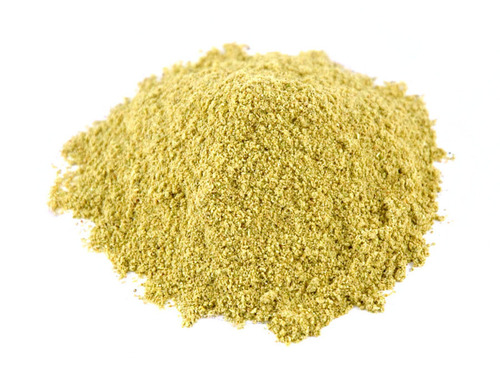Description
Fenugreek seeds have a pleasantly bitter flavour and strong aroma, which adds a lot
 of value to subzis, dals and other dishes, when used in moderation. While it is used whole in many preparations, it is added as a powder to many. Since the fenugreek seed has a hard shell, it might be soaked or roasted before powdering. Roasting also enhances the flavour and aroma, making the powder all the more desirable.
of value to subzis, dals and other dishes, when used in moderation. While it is used whole in many preparations, it is added as a powder to many. Since the fenugreek seed has a hard shell, it might be soaked or roasted before powdering. Roasting also enhances the flavour and aroma, making the powder all the more desirable.
How to Select
• It’s always better to buy whole seeds and then grind them at home for maximum taste, and also to avoid contamination.
• Buy uniformly sized and yellow coloured seeds with maximum aroma for this purpose.
• If buying readymade powder, choose a good brand. Check the seal and use-by date before purchasing.
Culinary Uses
• Fenugreek seed powder has been used as a spice by the Indians and Chinese for centuries. It adds to the taste of curries, gravies and other preparations.
• Fenugreek powder is sometimes used to impart a maple-flavouring to confectionery.
• Flour mixed with ground fenugreek makes spicy bread.
How to Store
• Unlike the seeds, fenugreek powder can lose its aroma quite soon.
• Hence, powder in small quantities as and when needed.
• If required, store in an airtight container, unrefrigerated.
Health Benefits
• Fenugreek is known to have great medicinal properties, especially for cleansing the body, decongesting the lungs, controlling cough and improving immunity. Using a powder of fenugreek helps to quickly prepare decoctions and other medicinal concoctions.
• Fenugreek powder has been used fairly extensively by lactation consultants to increase milk production in nursing mothers.
• A teaspoon of fenugreek powder had with a glass of warm water on an empty stomach, it helps to control blood sugar levels.
• A concoction of fenugreek powder with lime juice and honey helps to stimulate the appetite.
• A tea made with fenugreek powder, sweetened lightly with honey, helps soothe the stomach and to relieve headaches too.
